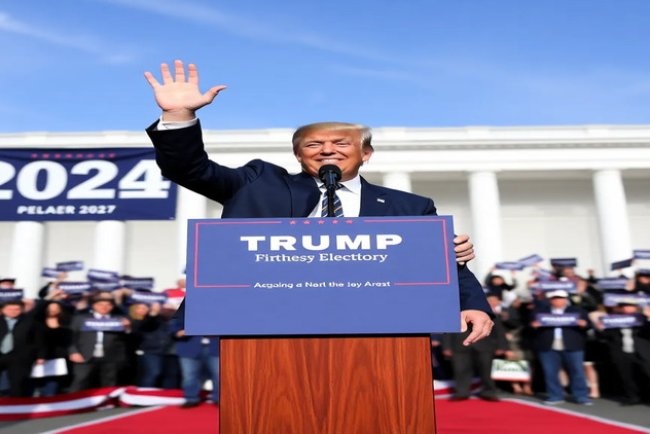Trump’s Victory Implications for Crypto Advisors Post-Election
Explore the impact of Trump's election on crypto markets, regulatory expectations, and the evolving landscape for advisors in the digital asset space.

As of November 11, 2024, Donald Trump has been elected as the 47th president of the United States, coinciding with Bitcoin reaching a new all-time high during the election vote count. In this edition, Jason Leibowitz from Hashnote explores Trump's policies and their potential impact on the crypto industry, along with the market's immediate response to the election results.
Election Aftershock: How Crypto Markets Priced in Trump's Victory
On election night, November 5, Bitcoin surged past $75,000 as Trump declared victory. The Republican sweep in Congress is perceived positively by the crypto community, anticipating a regulatory environment more conducive to digital assets. Trump's outspoken support for crypto and his criticism of the SEC's stringent regulations have raised expectations for a more innovation-friendly regulatory landscape. The market's quick response highlights crypto's role as a constant indicator of significant events.
Historic Gains and Regulatory Shifts
As the election results were announced, Bitcoin's rise reflected optimism for regulatory clarity under a Trump administration. Trump has been critical of SEC Chair Gary Gensler's approach to crypto, leading to expectations of clearer policies for digital assets. This surge indicates growing institutional confidence, with the crypto market approaching a valuation of $2.5 trillion, bolstered by the introduction of Bitcoin and Ether ETFs.
Polymarket’s Predictive Power
Blockchain-based prediction markets, such as Polymarket, have enhanced election forecasting accuracy, often surpassing traditional polling methods. Polymarket consistently favored Trump's chances, with odds reaching 90% on election night, even before he secured the necessary electoral votes. Over $3.2 billion was wagered on the election outcome, showcasing the reliability of decentralized prediction markets in forecasting events.
Crypto as a Real-Time Market Indicator
Crypto markets have historically reacted sharply to political events. For instance, after a failed assassination attempt on Trump in July, Bitcoin experienced a significant rally, reflecting investor confidence in his resilience. This responsiveness illustrates how crypto serves as a real-time indicator of global shifts, with continuous trading capturing immediate market sentiment.
The anticipated regulatory reforms signal a convergence between traditional finance (TradFi) and decentralized finance (DeFi). Bitcoin, traditionally viewed as a non-income-producing asset, is evolving with strategies that allow for income generation, marking a significant shift in its role within investment portfolios.
Ask an Expert
Q. What do you make of the heated U.S. presidential election season from a crypto veteran’s perspective?
The conversation around crypto has evolved significantly over the past decade. Politicians who once criticized crypto are now some of its strongest advocates. Trump, who previously expressed skepticism towards Bitcoin, has encouraged supporters to hold their assets. Meanwhile, the Democratic party, represented by Vice President Kamala Harris, has shown a more open stance towards crypto, moving away from the previous administration's regulatory hostility.
Q. Are U.S. politicians generally pro or anti-crypto? How do you see local regulations evolving?
U.S. politicians exhibit a range of attitudes towards crypto, with recent national policy influenced by critics of the industry. However, as the crypto sector becomes more organized politically, both parties are increasingly pro-crypto to attract voters. The competitive nature of global regulatory environments may further push U.S. politicians to adopt a more favorable stance towards cryptocurrency.
Q. What’s next for industry stakeholders in this regulatory environment? How should they prepare?
In the current political climate, it is crucial to differentiate between meaningful developments and mere noise. The SEC's approval of Bitcoin and Ether ETFs is politically significant, as are court rulings involving crypto companies. Institutional participation is growing, and major U.S. Web3 companies should consider expanding into emerging digital asset markets globally, recognizing the borderless nature of cryptocurrencies.
- BlackRock's Bitcoin ETF has surpassed $30 billion in assets under management, becoming the fastest-growing ETF in history.
What's Your Reaction?















